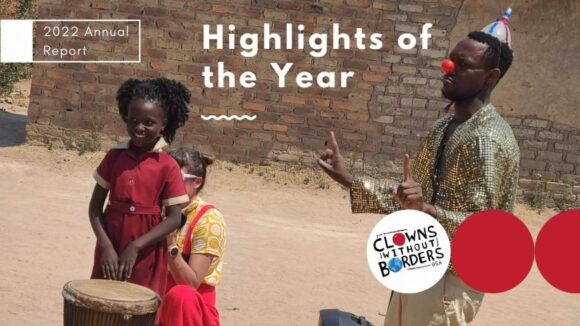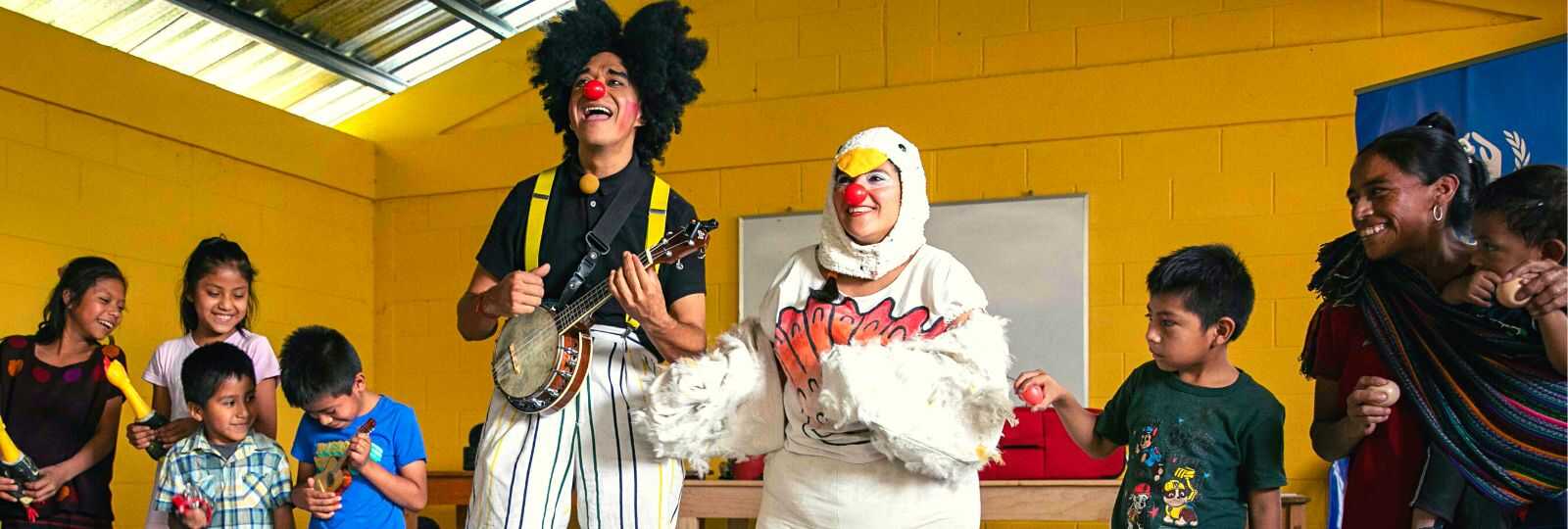
2022: Sharing Laughter with Many Kinds of Displaced People
CWB’s 2022 theme, Diversity of Displacement, drew attention to the many ways people become or remain displaced. Each displacement situation is worthy of attention and response.
2022 audience members experienced:
- Protracted displacement (Kurdistan, Lebanon)
- Environmental displacement (Zimbabwe, Brazil, Guatemala)
- Humanitarian crisis (Ecuador, Mexico)
- War and human rights violations (Poland, Romania, Egypt)
Below you’ll find all the countries CWB toured in 2022 (listed alphabetically) with associated blog post links. Each post tells why we were invited and what happened during the performances.
Yes, you’ll definitely see photos of laughing children with clowns, as well as quotes from audience members and artists.
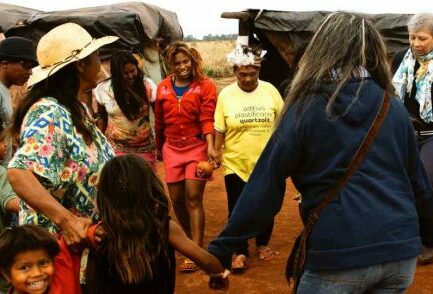
Brazil
Do you know the Guarani?
The Guarani-Kaiowá are one of Brazil’s largest Indigenous communities. They’ve survived forced displacement since the late 1800s and increased violence since the 1950s. Read more here.
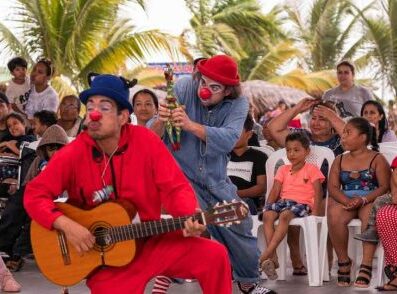
Ecuador
How does clowning combat xenophobia?
Read on to learn about xenophobia, how it affects communities in Ecuador, and how CWB clowns responded (including pictures and a video).
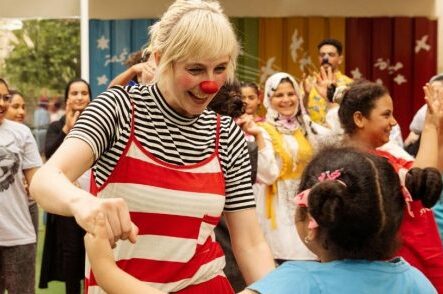
Egypt
Who is displaced in Cairo, Egypt?
This tour, more than any other this year, challenged our concept of displacement.
This post will introduce you to five groups of displaced kids in Cairo you want to meet.
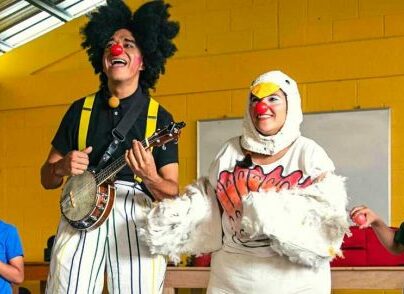
Guatemala
Do you know what makes Guatemala a main migration corridor to the north?
This post explores that question — and why children are now dreaming of being a chicken when they grow up.

Iraqi-Kurdistan
What does “being seen” mean to a person who is stateless?
It’s about being acknowledged, represented, supported, and included.
Read this post to learn how Kurdish refugee children were seen and celebrated.
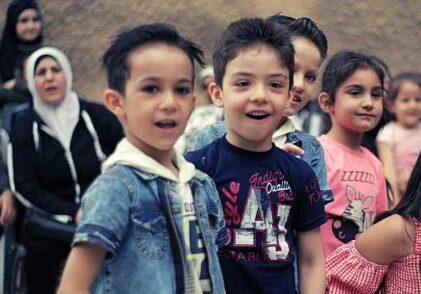
Lebanon
Clown Me In is a community-based organization in Lebanon.
In this post, you’ll learn about Clown Me In, its flavor of clowning, and how communities responded to their clowning following the Beirut explosion in August 2020.
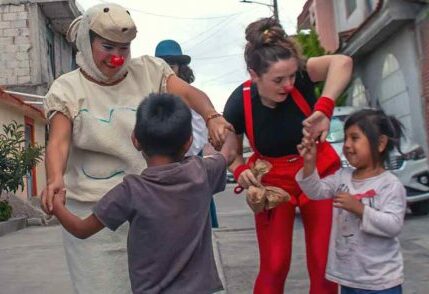
Mexico
Want to hear from the artists? In this post, they each share a story of how women and girls use play to connect and dream of a better future.
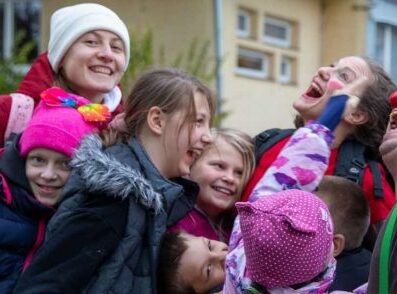
Poland
You may wonder how a clown show for Ukrainian refugees removes the stress, fear, and uncertainty of displacement.
But that’s actually not the goal. Do you know what is? Find out in the post.
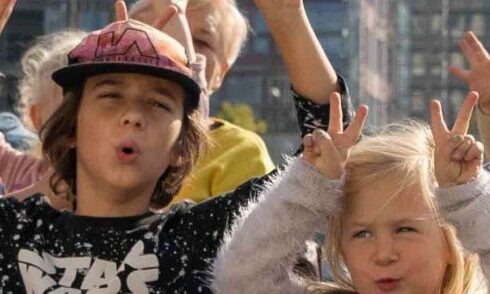
Romania
Ukrainian refugees didn’t expect to become part of the clown show. But that’s exactly what happened!
Read on to see how it went down!
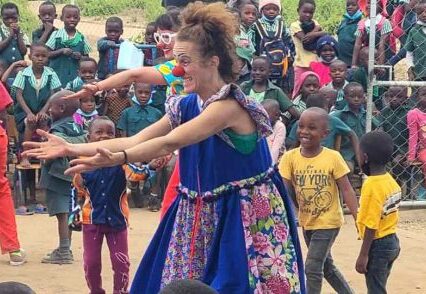
Zimbabwe
Do you know what the thunderous roar of 1,800 people sounds like?
Hear it for yourself and learn why CWB returned to Zimbabwe three years after our first visit.
2022 Annual Report
Read our 2022 Annual Report to learn more about CWB and our 2022 outcomes.
